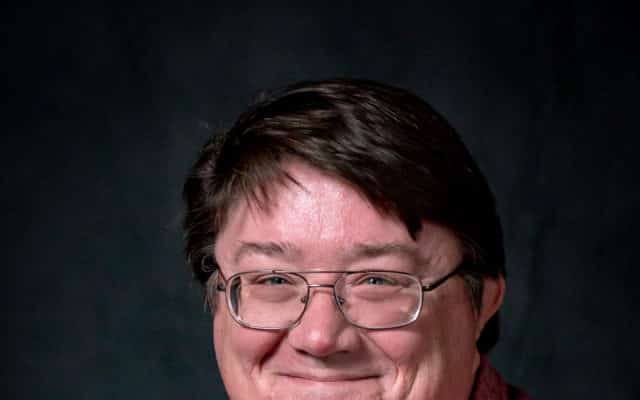
“The History Department at Hillsdale emphasizes those great ideas which have shaped the modern world, rather than ephemeral cultural phenomena and shallow identity politics.”— Dave Stewart
Faculty Information
Additional Faculty Information for Dave Stewart
Education
Ph.D. in Early Modern European History, Ohio State University, 1993
M.A. in Early Modern European History, Ohio State University, 1989
B.A. in History, Eastern Nazarene College, 1987
B.S. in Chemistry, Eastern Nazarene College, 1987
Publications
“Pierre Chaunu”
In French Historians, 1900–2000: New Historical Writing in Twentieth-Century France edited by Philip Daileader and Philip Whalen. (Oxford: Wiley-Blackwell, 2010).
Assimilation and Acculturation in Early Modern Europe: France and Roussillon
1659–1715, Greenwood Press: 1997.
Entries in The Treaties of the War of the Spanish Succession
Greenwood Press: 1995.
“Response Surface Analysis of Bioconcentration by Chlorinated Organics Using Molecular Connectivity”
SAR and QSAR in Environmental Research 2 (1994): 181–191.
“Compilation of Reported Biological Effects Data and Ultrasound Exposure Levels”
Journal of Clinical Ultrasound 13 (March/April 1985): 167–186.
Biography
Our society now takes certain ideas for granted and rejects others out of hand. In the eighteenth century, Europeans fiercely discussed the conflicts among important political, religious, social, and economic ideas, making explicit what we today only assume. The History Department at Hillsdale emphasizes those great ideas which have shaped the modern world, rather than ephemeral cultural phenomena and shallow identity politics. I appreciate Hillsdale’s emphasis on the permanent things and its refusal to follow modern educational fads.
Vergerius sums up the purpose of higher education in The New Education. He says, “We call studies liberal which are worthy of a free man; those studies by which we attain and practice virtue and wisdom; that education which calls forth, trains, and develops those highest gifts of body and of mind which ennoble men, and which are rightly judged to rank next in dignity to virtue only.”
Hillsdale achieves this through small classes that allow professors to know their students’ interests and abilities. This, in turn, allows us to develop special classes that sharpen those interests and skills, and permits us to point students to particular scholarships, internships, and careers particularly well-suited to them.
When I’m not teaching, I spend time reading mysteries, photographing, and expanding my collection of more than 800 rubber ducks.